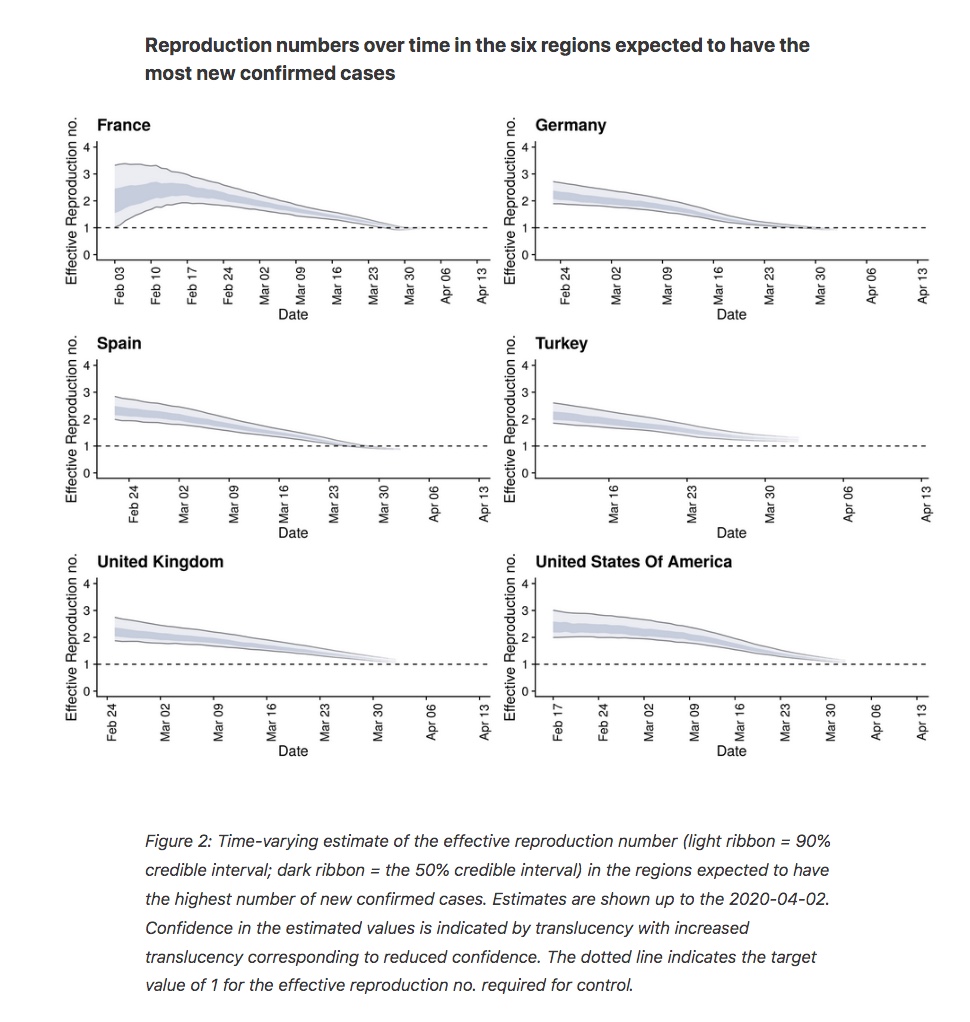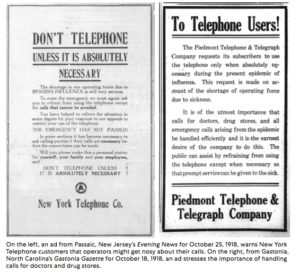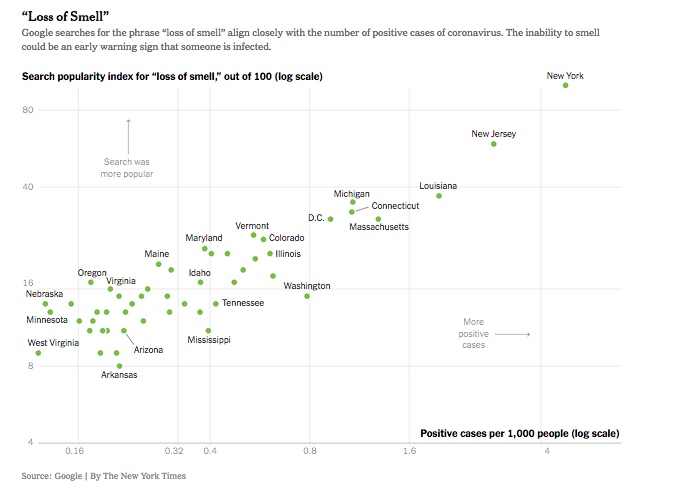Using AI to find candidates for trying against COVID —
Er, for “AI” read machine learning. Usual mistake, but interesting nevertheless.
A team at BenevolentAI, a UK company that uses machine learning to aid drug discovery, had been searching through their database of all existing, approved drugs, searching for one that could be repurposed to treat the novel coronavirus. And according to this report they found one in just three days.
“Most drug companies had been looking at antiviral drugs, but we approached it from the other end and looked at what processes used by the virus could be disrupted,” said Peter Richardson, vice president of pharmacology at the company.
Protein kinases — enzymes that speed up chemical reactions in the body — seemed a promising area to look into. Some of these regulate the way substances can enter human cells — disrupt them, and the virus might be unable to get into the lung, heart and kidney cells it has been so prone to invading.
Baricitinib, a drug developed by Eli Lilley and approved in 2018, stood out because it not only inhibited kinases but also prevented the cytokine storms — the body’s own extreme autoimmune reactions that have led to so many fatalities with Covid-19. It was also likely to be compatible with other drugs being used to treat the disease, such as remdesivir. Richardson and a team of three part-time researchers identified an initial 370 kinase inhibitors, and then narrowed it down to six that looked most likely to work.
“It validated using AI for this kind of problem,” says Richardson. “It would have been impossible for the four of us to do it at that speed otherwise. If you took 250 people you still couldn’t do it at that pace because there would be too many competing ideas. You really can’t do it without an organised knowledge graph and the ability to query it.”
Interesting. I suppose they had to describe it as AI, given that the letters appear in the firm’s name. Benevolent Machine Learning doesn’t have the same ring to it.
How coronavirus almost brought down the global financial system
Another amazing long read from Adam Tooze, this time about how close the world came to a financial meltdown because of the Coronavirus. Most of it stuff I hadn’t known or understood. Tooze is a really phenomenal historian, with an astonishing grasp of how the finance industry works. * Crashed: How a Decade of Financial Crises Changed the World*, his history of the 2008 banking crisis, is terrific. And now he seems to be really on top of the Coronavirus crisis. I’ve been thinking that what we’re facing at the moment is what the world would have been like if the Spanish flu and the Great Depression had come together.
This essay, which is worth reading in full (requires a cup of coffee and some peace and quiet) is mainly about how the central bankers of the West succeeded — just — in avoiding a global meltdown. But it ain’t over yet. And most poor countries don’t have the resources — financial or professional — to deal with the virus.
Security for home workers
From Bruce Schneier’s blog.
When I think about how COVID-19’s security measures are affecting organizational networks, I see several interrelated problems:
One, employees are working from their home networks and sometimes from their home computers. These systems are more likely to be out of date, unpatched, and unprotected. They are more vulnerable to attack simply because they are less secure.
Two, sensitive organizational data will likely migrate outside of the network. Employees working from home are going to save data on their own computers, where they aren’t protected by the organization’s security systems. This makes the data more likely to be hacked and stolen.
Three, employees are more likely to access their organizational networks insecurely. If the organization is lucky, they will have already set up a VPN for remote access. If not, they’re either trying to get one quickly or not bothering at all. Handing people VPN software to install and use with zero training is a recipe for security mistakes, but not using a VPN is even worse.
Four, employees are being asked to use new and unfamiliar tools like Zoom to replace face-to-face meetings. Again, these hastily set-up systems are likely to be insecure.
Five, the general chaos of “doing things differently” is an opening for attack. Tricks like business email compromise, where an employee gets a fake email from a senior executive asking him to transfer money to some account, will be more successful when the employee can’t walk down the hall to confirm the email’s validity — and when everyone is distracted and so many other things are being done differently.
Worrying about network security seems almost quaint in the face of the massive health risks from COVID-19, but attacks on infrastructure can have effects far greater than the infrastructure itself.
After the analogue hammer, comes the data-driven dance.
From Sifted
“Coronavirus has reminded even the most conservative among us that there is a role for the state after all. No government can outsource their way through this test. Suddenly, the absence of data skills at the centre of government is a life and death issue. The hammer blows will decrease. As the dance begins, states must respond with agility, using public and private data. An era of central data units may emerge. Regulation for data registries and more powerful registrars seems certain as public trust in government data and a new locus for privacy and surveillance are all being tried and tested on a daily basis. This is one big A/B test for governments, whether democratic or autocratic. This may not be the internet founders’ much longed-for government 2.0 moment, but we are all in beta now.
The “hammer and the dance” metaphor is becoming a meme.
Why content moderators should be designated as key workers
Important paper from the Turing Institute arguing that, just now, the people who try to keep mis- and disinformation off social media should be regarded as part of the world’s critical infrastructure.
The current crisis surrounding COVID-19 has scaled up the challenge of content moderation, severely reducing supply and massively increasing demand. On the “supply side”, content moderators have, like other workers around the world, been told not to come into work. YouTube has already warned that, as a result, it will conduct fewer human reviews and openly admits it may make poor content takedown decisions.
On the “demand side”, the growth of the pandemic has seen an upsurge in the amount of time spent online. BT recently noted an increase in UK daytime traffic of 35-60%, and social networks report similar increases, particularly in their use for education, entertainment and even exercise. Sadly, harmful activity has increased too: Europol reports “increased online activity by those seeking child abuse material” and the World Health Organisation has warned of an emerging “infodemic” of pernicious health-related disinformation. Recently, concerns have been raised that false claims are circulating online about the role of 5G.
At a time when social media is desperately needed for social interaction, a widening gap is emerging between how much content moderation we need and how much can be delivered. As a result, AI is being asked do tasks for which it is not ready, with profound consequences for the health of online spaces. How should platforms, governments, and civil society respond to this challenge? Following Rahm Emmanuel’s exhortation to “never let a crisis go to waste,” we argue that, now that the challenges in content moderation have been exposed by the pandemic, it is time for a reset.
Yep.
Quarantine diary — Day 25
his blog is now also available as a once-a-day email. If you think this might work better for you why not subscribe here? (It’s free and there’s a 1-click unsubscribe if you subsequently decide you need to prune your inbox!) One email a day, in your inbox at 07:00 every morning.







